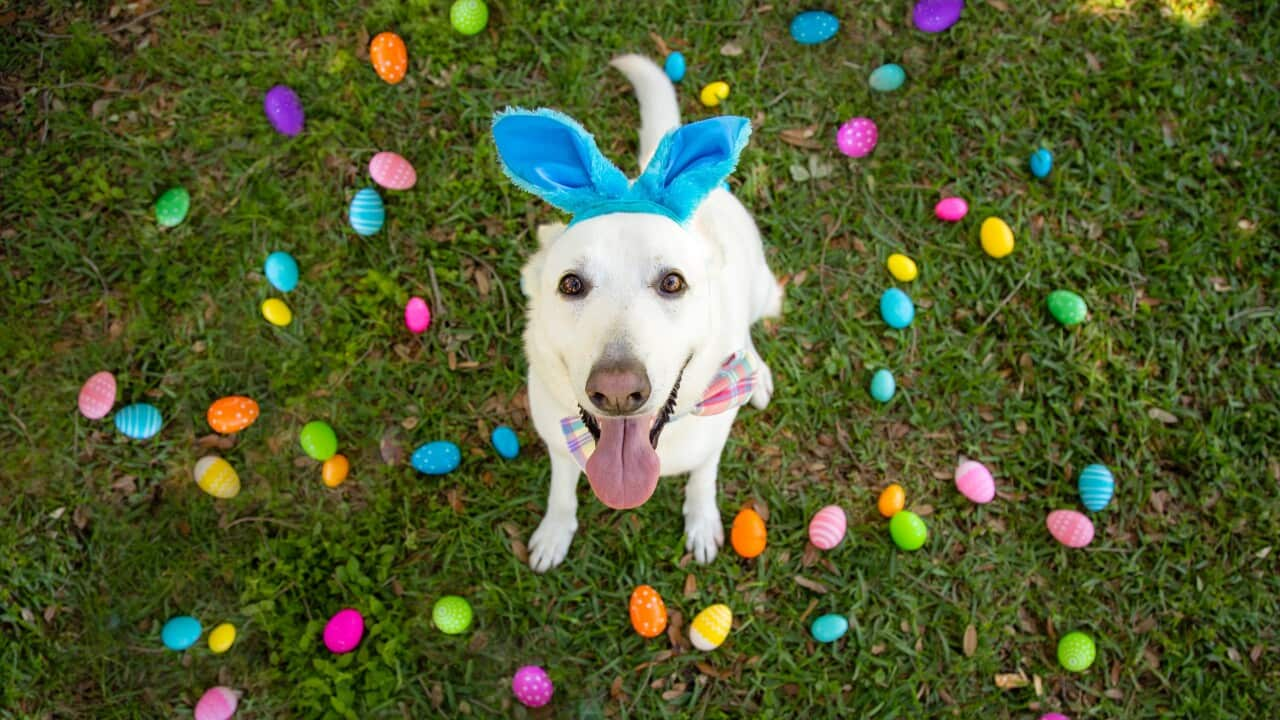With Easter festivities upon us, households are often filled with more sweet treats than usual.
But for pet owners wanting to avoid an unwelcome visit to the vet, it's important to remember these delights can also prove tempting for animals and leave them feeling unwell.
"The most important things really are just keeping those sweet treats, chocolates, anything with raisins — so hot cross buns especially — away from your dogs," Dr James McGregor from Melbourne's Lort Smith Animal Hospital told SBS News.
"Also for cats ... Easter lilies pose probably the biggest risk — so, keep those away from your cat."
Easter sweet tooth treats aren't the only danger.
McGregor said raw fish, cooked bones, grapes, onions and garlic, corn on the cob, nuts, and meat trimmings all have the potential to put pets in harm's way.
"We've seen a really wide range of cases, to be honest with you. From mild vomiting and diarrhoea, to more severe instances where they've been in hospital for weeks with kidney issues," he said.
The advice to pet owners: keep a look out for a visit from the Easter bunny this weekend.
While children may not find all the chocolate you've hidden — McGregor warned to never underestimate the tenacity of your average pet to hunt down and eat forbidden sweet treats.
"Labradors will do anything to grab that sweet treat off the side of the table," he said.
"They will try and outsmart us."
The amount of the wrong sort of food and the size of the pet will govern how bad the reaction is — but veterinarian Megan Brashear says you'll soon know if your pet is in trouble.
"We'll tend to see signs in these patients about one to four hours post-ingestion," she said.
"First, we'll see GI (gastrointestinal) distress. In these more mild reactions, these animals are going to be vomiting and probably have diarrhoea.
"What really gets concerning about these guys is that the methylxanthines actually increase the calcium content inside the cell; and it increases cell excitability. So, we start to see muscle tremors."
If despite all precautions, your pet does manage to get hold of a forbidden food, the advice is simple.
"The first thing you need to do is to contact your vet and there are some pieces of information that can be really helpful to work out how much danger your pet is in: and that's your dog's approximate weight," Dr Simone Maher, chief veterinary officer for insurance company PetSure, told Channel 9 on Wednesday.
"If you can, [tell them] what sort of chocolate they ate. The darker the chocolate, the more dangerous, the less they need to eat."





